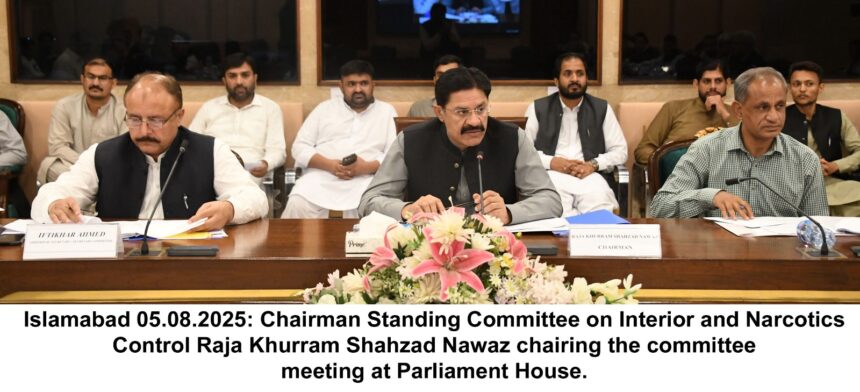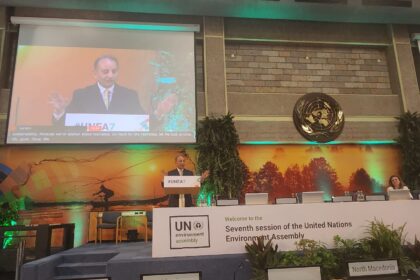Parliamentary Committee Pushes Stricter Anti-Terror Law Penalties
Czechangez Khan Jadoon
Pakistan’s National Assembly Standing Committee on Interior and Narcotics Control has recommended sweeping changes to the country’s anti-terrorism laws and criminal penalties, aiming to increase state powers and toughen punishment for serious crimes. The Committee endorsed the Anti-Terrorism (Amendment) Bill, 2024, specifically focused on updating Section 11EEEE, after detailed discussions that reflected growing concerns over evolving security threats.
In a notable move to bolster accountability for grave offenses, the Committee supported reclassifying certain criminal acts from “bailable” to “non-bailable.” The proposed Code of Criminal Procedure (Amendment) Bill, 2024 seeks to change the status of offenses under Section 320—which deals with causing death by rash or negligent acts—making them non-bailable. Lawmakers emphasized that this step responds to public pressure for more stringent consequences for serious crimes.
Not all proposed legislation advanced at the session. Some bills, including the Code of Criminal Procedure (Amendment) Bill, 2025, were deferred because they required further briefing from the Ministry of Law and Justice, while The Criminal Law (Amendment) Bill, 2024 was postponed due to the absence of the bill’s sponsor. The much-awaited Corrosive Substances Assault (Prevention and Protection) Bill, which targets acid attacks and related violence, was also put on hold for additional coordination.
The Committee also addressed concerns about Islamabad’s rural infrastructure, with the Capital Development Authority (CDA) reporting a self-financed allocation of Rs. 10 billion for road development. Updates revealed that Jagiot Road is projected for completion by the end of September 2025, and the Sikandar-e-Azam Road project is already 70 percent finished. MNA Nuzhat Sadiq, who raised the issue of project delays, conveyed residents’ complaints but expressed satisfaction with the CDA’s current transparency and progress.
Sanitation and inadequate public facilities in Islamabad’s F-10 and F-11 parks were also highlighted, prompting Committee members to urge CDA officials to speed up maintenance and improvements. The Minister of State assured the Committee of fair and effective solutions for affected areas.
The session, chaired by MNA Raja Khurram Shahzad Nawaz, brought together top lawmakers and senior officials from the Ministries of Interior, Law and Justice, and the CDA. The meeting’s agenda underscored the Committee’s commitment to national security reforms and the improvement of public infrastructure and amenities.











